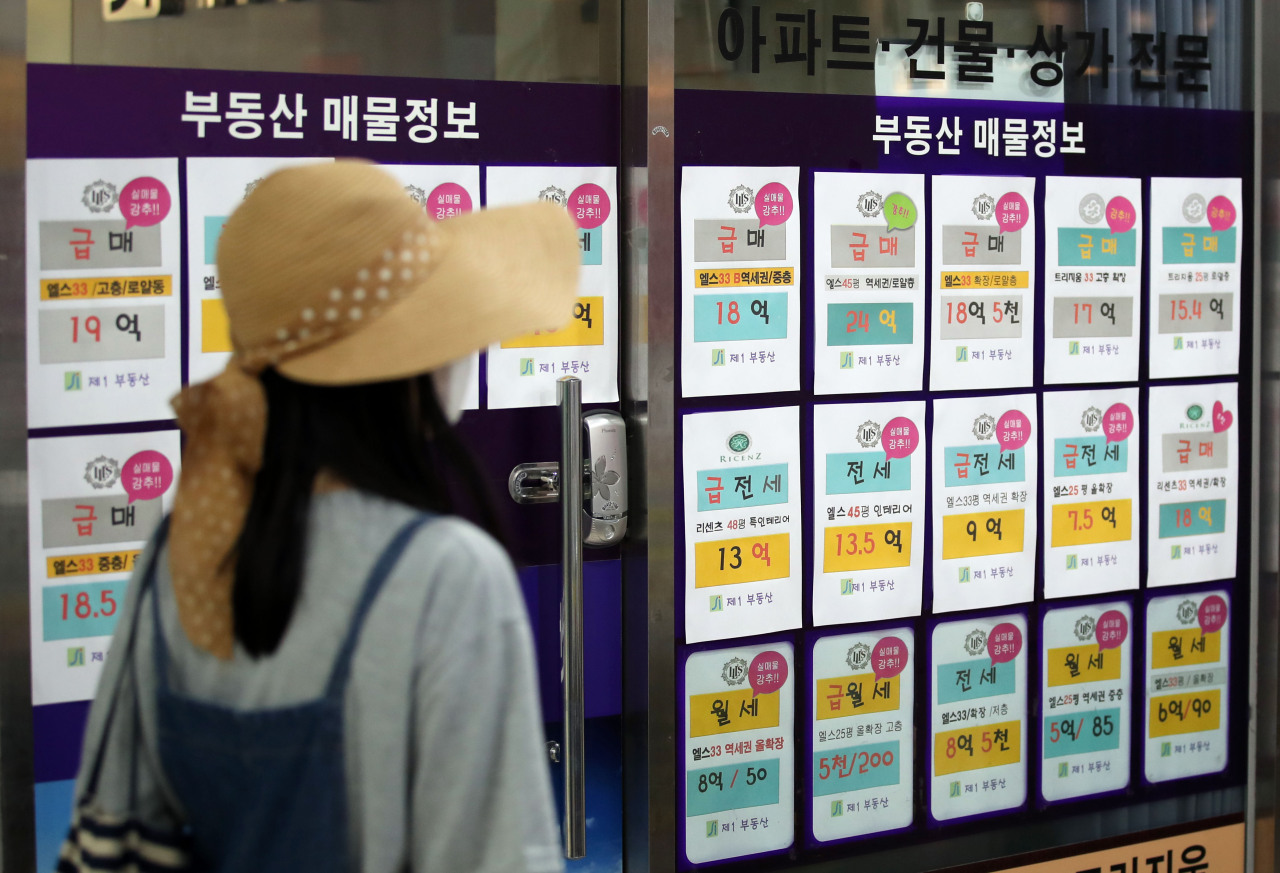
Postings for apartments put up for sale at a real estate agent in Seoul indicate that prices per unit in the district range between 1.5 billion and 2.4 billion won ($1.25 million-$2 million) as of June 14. (Yonhap)
SEJONG -- The next presidential election will be conducted in about 20 months, under which South Korea is to see the president-elect in March 2022.
While President Moon Jae-in finishes his term at midnight May 9, 2022, the new presidential transition committee -- being formed after the scheduled March 9 election in the year -- will carry out preparation activities during Moon’s final weeks in office.
A viewpoint for the coming 20th president of Korea is whether the majority of voters will select a candidate from the left-wing party as the past “tradition.”
The nation chose left-wing figures -- Kim Dae-jung and Roh Moo-hyun -- for two consecutive elections in 1997 and 2002 and right-wing figures -- Lee Myung-bak and Park Geun-hye – twice straight in 2007 and 2012.
As the left-leaning Moon was elected in 2017, it’s possible that the left and right governing in alternate decades may become a tradition.
In terms of administrative performances, voters are likely to compare social justice during the Moon administration and that of the previous Park administration.
While Park was impeached in early 2017 in the wake of the influence-peddling scandal involving her friend Choi Soon-sil, some political heavyweights on the left have faced public criticism for allegations or irregularities that went against social justice they had nominally prioritized -- during the Moon’s tenure.
When it comes to the economy, real estate policy is one of the biggest issues for voters.
Left-wing politicians have continued to claim that the former Park government should be held accountable for spiraling apartment prices, particularly in Seoul. They have continued to highlight the past administration’s stimulus policy via drastically easing terms for mortgages.
But data showed that the Moon government has totally failed to curb property prices during the first three years of his term. Even some progressive civic groups have recently denounced its real estate policies.
As dozens of measures the administration unveiled to curb prices backfired, fanning them instead due to a variety of loopholes, many online commenters say that the incumbent administration has no desire to curb the price spikes.
Seoul apartment prices have posted far higher growth during Moon’s term than in Park’s term. Prices in some apartment complexes have doubled.
The situation does not fit with Moon’s stated desire to govern for the benefit of ordinary people, as the high prices and ineffective policies stopped ordinary households from buying homes.
It is hard to find an 84-square-meter apartment unit in many of the 25 administrative districts in Seoul for less than 1 billion won ($830,000).
For the taxation sector, the government is struggling to levy salaried people a variety of taxes after actively using taxpayer money under huge-scale supplementary budgets over the past three years.
Despite the series of extra budgets to boost the economy, the GDP growth stayed at 2 percent in 2019, which is the lowest figure in the 2010s.
As for the education sector, some online commenters claim that the left-wing government is trying to lower overall educational standards by pushing for abolishment of elite high and middle schools.
Commenters point out that the children of some left-wing political heavyweights and educational superintendents graduated from elite schools or studied abroad, in stark contrast to their policies.
The North Korean policy has faced a serious deadlock, which is a perfectly different phase in only two years.
Meanwhile, Moon’s supporters say the landslide victory of the ruling Democratic Party in the 2020 general election and the president’s approval rating, which is hovering over 50 percent, have proved that voter sentiment was different from the dominant opinions expressed on the Internet.
The United Future Party -- the major right-wing and main opposition -- has yet to suggest marked alternatives to placate those, who were furious about the Choi Soon-sil scandal or to attract those disappointed with the Moon government.
By Kim Yon-se (kys@heraldcorp.com)






